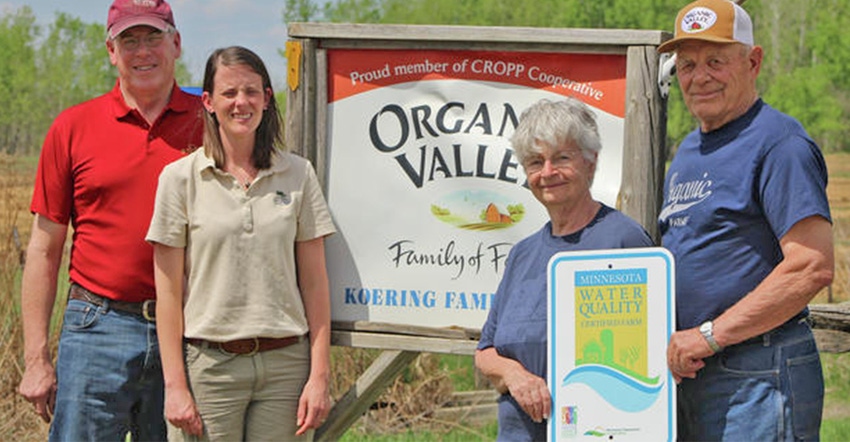
As of early June, the Minnesota Ag Water Quality Certification Program has enrolled 579 producers, certified 368,875 acres and implemented 1,071 new conservation practices.
MAWQCP is a voluntary program for farmers and agricultural landowners to implement conservation practices that protect the state’s water. Those who install and maintain approved farm management practices become certified and receive regulatory certainty for a period of 10 years.
Along with regulatory certainty, certified MAWQCP producers also receive public recognition of their status as protective of water quality, and they receive priority in obtaining specially designated technical assistance to implement practices that promote water quality.
Dave Frederickson, Minnesota Department of Agriculture commissioner, said at a recent MDA meeting that farmers who receive certification under the program are considered in compliance with any new water quality rules or laws during the period of certification. And that includes the new proposed Groundwater Protection Rule, which is also known to farmers as the proposed Nitrogen Fertilizer Rule.
MAWQCP defines a "new practice" as an identified risk that is mitigated, despite the number of treatments involved.
Examples of new practices include:
• installing six water quality inlets on tile inlets
• addressing gully erosion with a series of three water and sediment control basins
• following University of Minnesota recommendations for nitrogen timing and rate across entire farming operation
• planting cover crops after all corn silage, dry beans and potato crops
June 25 meeting open to public
The next MAWQCP Advisory Committee meeting is June 25. The meeting is open to the public and will be held from 10 a.m. to 3 p.m. at 180 South Lakeshore Drive in Glenwood.
Learn more about MAWQCP online.
About the Author(s)
You May Also Like






